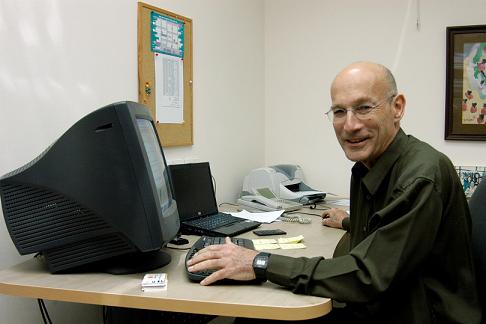The "A Better World" report of the International Organization for the Commercialization of University Technology (AUTM) ranks among the hundred technologies developed at Acemia and commercialized systems in the field of combating infectious diseases and in the field of Alzheimer's developed by scientists at Tel Aviv University and commercializing Ramot

The "A Better World" report by the International Organization for the Commercialization of University Technology (AUTM) published this week reveals the 100 successful technologies that were 'born' in the corridors of academia and turned into commercial products and applications, among which are two Israeli technologies: in the field of fighting Alzheimer's disease and in the field of fighting infectious diseases . For comparison, countries such as Sweden, the Netherlands and Taiwan appear in the distinguished list with only one university and with one technological development. AUTM is a global umbrella organization, which currently includes technology managers, CEOs and heads of institutions from 45 countries, who are responsible for commercializing university technologies around the world.
The innovative technology for the treatment of Alzheimer's disease was developed by a team of researchers led by Prof. Ehud Gazit from the George S. Wise at Tel Aviv University and was licensed to the German Meraz Pharmaceuticals by Ramot. The exclusive and worldwide license agreement included payment of license fees, milestone payments and payment of royalties on future sales.
The technology in the field of viruses was developed by Prof. Michael Ovadia from the George S. Faculty of Life Sciences. Wise at Tel Aviv University and licensed by Ramot to Frutarom Industries Ltd. The technology includes unique knowledge, protected by a patent application, for the production of an innovative cinnamon extract with antiviral activity. In a comprehensive study carried out in Prof. Ovadia's laboratory, the extract's ability to quickly neutralize the activity of a wide variety of viruses that cause infectious diseases, in humans and animals, such as: human and bird flu (Influenza), the herpes virus (HSV-1) and the AIDS virus the acquired immune system, HIV-1).
According to Dr. Yehuda Niv, CEO of Ramot, "We welcome the global recognition we received in the current report, and are happy that Tel Aviv University researchers are developing diverse technologies for the benefit of a 'better world.' Ramot works to strengthen the relationship between the research community and industry, in order to enable the continued development of academic findings and their transformation into products for the common good."
To download the full report (Part Two): Tel Aviv University appears in the report on pages 17 and 52

One response
Hwyag! die for you!